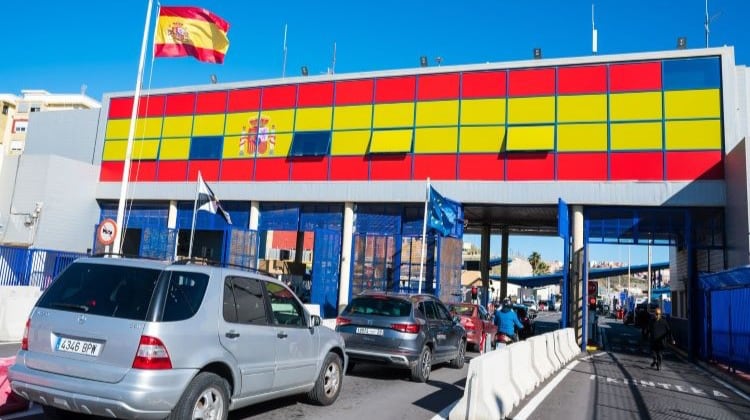The Diplomat
The Ministry of Foreign Affairs assured yesterday that the “pilot test” for the commercial opening of customs with Morocco has concluded “successfully”, which is “the first step for Spain and Morocco to have a customs office in Ceuta for the first time and to reopen the one in Melilla, closed since 2018”.
“Ceuta and Melilla successfully conclude the test for the commercial opening of customs with Morocco”, Ministry sources indicated. Thanks to this, they continued, the two Autonomous Cities took yesterday “the first step for Spain and Morocco to have a customs office in Ceuta, for the first time, and for the one in Melilla, closed since 2018, to be reopened”. “In the case of Ceuta, this opening represents something unprecedented to date and which represents a milestone in the relationship between the two countries”, they added.
Specifically, yesterday, the first commercial expedition was carried out, which, on an experimental basis, was to allow to test on the ground the responsiveness of the two countries. With this test of commercial exchange through both customs “an important milestone of the roadmap that Spain and Morocco sealed on April 7 is fulfilled” and will be able to “adapt, gradually and gradually, a new normality that Spain and Morocco wish to reach as soon as possible,” the Ministry stressed.
According to Foreign Affairs, the High Level Meeting, to be held in Rabat on February 1 and 2, will be “the moment to bring the results of the pilot test” carried out yesterday, which will serve as a basis for designing “a timetable that will allow trade between the two countries with all the guarantees”. More specifically, the tests “will indicate the needs in terms of infrastructures, for the implementation of controls and for the deployment of the necessary personnel to respond to the users of this customs”, they concluded.
Last January 24, the Minister of Foreign Affairs, José Manuel Albares, assured in Madrid that “the entire Spanish-Moroccan road map established in the Spanish-Moroccan declaration of April 7 will be fulfilled”. Therefore, “as the Moroccan Minister of Foreign Affairs, Nasser Bourita, announced with me, both in New York and in Barcelona in the margins of the UfM meeting, this first passage of goods from Ceuta and Melilla is going to take place before the High Level Meeting”, he continued.
In application of the road map agreed to Rabat by the President of the Government, Pedro Sanchez, and King Mohamed VI of Morocco, Albares and Bourita agreed last September in New York on the gradual and partial resumption of the passage of goods through the land customs posts. This measure will involve the reestablishment of customs controls in Melilla, paralyzed since October 2018, and the establishment of a new customs office in Ceuta, which currently does not exist.
The High Level Meeting between Spain and Morocco, the first in almost eight years, will take place on February 1 and 2 in Rabat and will be attended by a dozen ministers of the Government of Pedro Sánchez. The second vice-president and Minister of Labor, Yolanda Díaz, has already announced that she will not participate in the meeting and everything suggests that neither will the Minister of Social Rights and leader of Podemos, Ione Belarra, nor the head of Consumption and federal coordinator of IU, Alberto Garzón, the other two members of the minority partner of the Government, Unidas Podemos.
The last RAN between Spain and Morocco was held in June 2015 and the next one had been scheduled, in principle, for December 2020, but since then it suffered several postponements because of the COVID-19 pandemic and the very deep diplomatic crisis that erupted in April 2021 after Spain’s decision to host in a hospital in Logroño the leader of the Polisario Front, Brahim Ghali, for humanitarian reasons.
The turning point came in March 2022, with the Spanish government’s decision to accept the Moroccan autonomy plan for Western Sahara as “the most serious and realistic basis” for a solution to the conflict. As a consequence of this “thaw” (one of the consequences of which has been the serious diplomatic crisis with Algeria, Spain’s main gas supplier), President Pedro Sanchez and King Mohamed VI adopted, on April 7 in Rabat, a bilateral roadmap that laid the foundations for the recovery of diplomatic relations and paved the way for the holding of the High Level Meeting.





